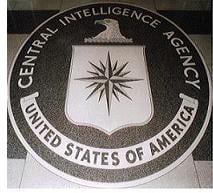Torture allegations
High Court rebuffs alleged torture victims in secrecy case
 The U.S. Supreme Court, refusing to question the federal government's power to withhold information for national security reasons, rejected an appeal by five men who say the CIA had them shipped to foreign countries to be tortured.
The U.S. Supreme Court, refusing to question the federal government's power to withhold information for national security reasons, rejected an appeal by five men who say the CIA had them shipped to foreign countries to be tortured.
The court today left intact an appeals court decision dismissing their suit against a Boeing Co. unit on the grounds that it would inevitably expose state secrets. The Boeing unit, Jeppesen Dataplan, allegedly provided planning and logistical support for the flights as part of the Central Intelligence Agency's "extraordinary rendition" program.
Human-rights groups urged the high court to take up the case, saying the government is increasingly using the so-called state secrets privilege to block lawsuits. The Bush and Obama administrations have invoked state secrets in seeking dismissal of suits over National Security Agency eavesdropping and a potential effort to kill a U.S. citizen suspected of terrorism.
"A broad range of official misconduct has been shielded from judicial review after government officials have invoked the privilege to avoid adjudication," the five men argued in their appeal, filed by the American Civil Liberties Union Foundation.
A San Francisco-based federal appeals court upheld dismissal of the lawsuit on a 6-5 vote. President Barack Obama's top Supreme Court lawyer joined the Boeing unit in urging the justices to let that ruling stand.
"The government's interest in national security must be deemed paramount to the interests of private litigants in pursuing civil actions," acting U.S. Solicitor General Neal Katyal argued in court papers.
Torture allegations
The men pressing the suit come from five countries. Ahmed Agiza, an Egyptian, says he was seized in Sweden and flown to Egypt, where he was tortured. Abou Elkassim Britel, an Italian of Moroccan origin, alleges he was arrested in Pakistan and sent to face torture, including sexual abuse, in Morocco.
Binyam Mohamed, an Ethiopian, says he was seized in Pakistan, tortured in Morocco and Afghanistan and later sent to the U.S. base at Guantanamo Bay, Cuba. Bisher Al-Rawi, an Iraqi, says he was arrested in Gambia, flown to Afghanistan to be tortured and later sent to Guantanamo. Mohamed Farag Ahmad Bashmilah, a Yemeni, allegedly was apprehended in Jordan and sent to both Afghanistan and an unknown country. Some of the men are still imprisoned while others have been released.
The men sued only Jeppesen, not the U.S. government. The U.S. intervened in the case and urged dismissal, pointing to a statement by then-CIA Director Michael Hayden that any further litigation would risk disclosure of state secrets.
At the Supreme Court, the five men argued that the state secrets privilege is designed to shield particular pieces of evidence, not to justify the dismissal of an entire suit.
The case is Mohamed v. Jeppesen Dataplan, 10-778.
(Published by Bloomberg - May 16, 2011)